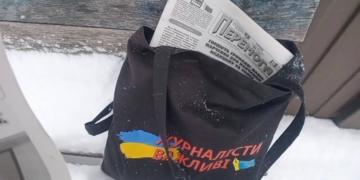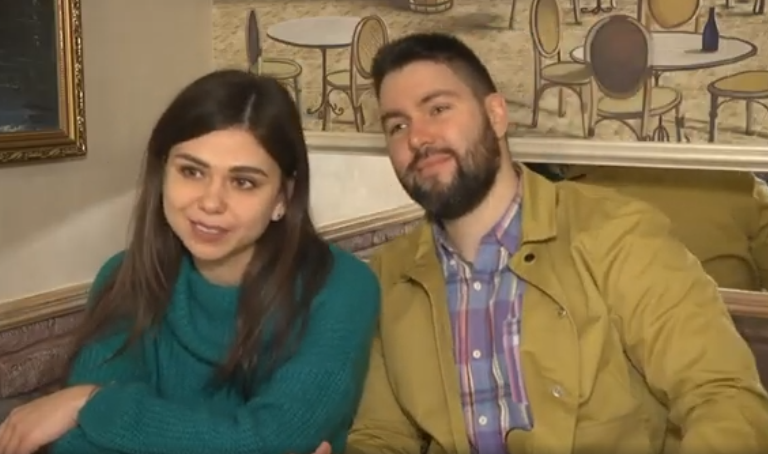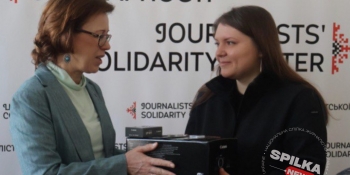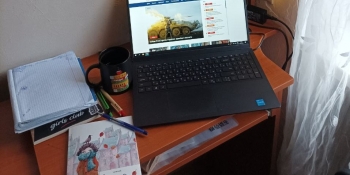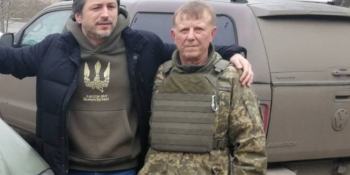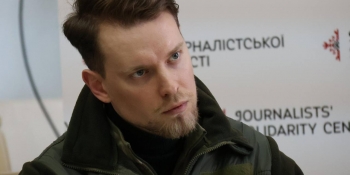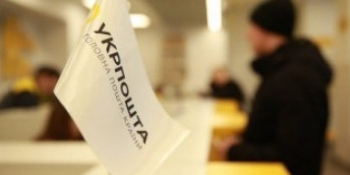Who said there can be no place for romantic feelings during war? Oleksandr Zabrodin from Sievierodonetsk and Aliyona Natalukha from Zaporizhzhia say in one voice: “If it hadn’t been for the war, we wouldn’t have met.” They are journalists of regional branches of Suspilne. We met in Lviv at a tactical medicine training. And then they hid together in a car from shelling.
Morning, February 24, 2022. It is 6 a.m. on the clock. A friend from Poltava calls Oleksandr with disturbing news.
“He says something like: “Sania [short for Oleksandr], have you seen it? It has started: they introduced martial law.” I say: “But it was only a state of emergency.” But he answers: “No, they have already started bombing,” Oleksandr begins the story. “I open the news and the first video I see: Ivano-Frankivsk was shelled, a missile hits an airport.
And within a few hours, something exploded in Sievierodonetsk, where Oleksandr lived and worked at the Suspilne.Donbas channel. Rockets hit a local airfield, and from that moment life in the city came to a standstill. At the beginning of March, the journalist’s family decided to leave, because it became more dangerous to stay in Sievierodonetsk.
“We were at home, probably, until March 4, and then heavy shooting began in the city, problems with the supply of food started, almost no one went to the market, there were problems with both food and connection. So, we decided to go to Cherkasy,” says the journalist.
Soon, the channel organized courses on providing first medical aid for its employees. In emergency conditions, journalists acquired new knowledge so that, if necessary, they could go to the combat zone in full combat readiness to perform their professional duties. At this training, Oleksandr first saw Aliyona, a journalist from Zaporizhzhia.

“Foreigners and Ukrainian specialists taught us to provide first aid, to behave properly during artillery fire, to work in a team,” says the journalist. “That’s where I met Oleksandr. There were many people at the trainings, but I remembered him in particular. Then after the trainings we started walking together. And after some time, I decided to go for a footage shooting in the gray area. I concealed the information about the first few trips there from my parents so that they would not worry. I saw with my own eyes the fear in people’s eyes, I saw tears, I saw hope and all that passed through me.
Aliyona shared stories about difficult shootings in the gray zone only with Oleksandr at that time they often talked on the phone, and later, they started coming to see each other on weekends.
“I think he already told me during the second meeting: we will talk with you, and if everything goes well, then I will move in with you. I was very surprised by this decision. Zaporizhzhia is under fire control, not far from the front line, and we were very little familiar with him,” says Aliyona with a smile.

Before moving to Zaporizhzhia, Oleksandr invited the girl to his home in Cherkasy.
“Then, we understood that everything is fine, everything is working out. There is a connection, there is a contact,” recalls Oleksandr.
And in a week, he packed his things, rented an apartment and moved to Zaporizhzhia, although he did not expect such steps from himself.
“I hadn’t had a serious relationship, but these events changed me a lot, and I realized that I don’t want to be alone. It is better to experience such difficult times together,” Oleksandr believes.
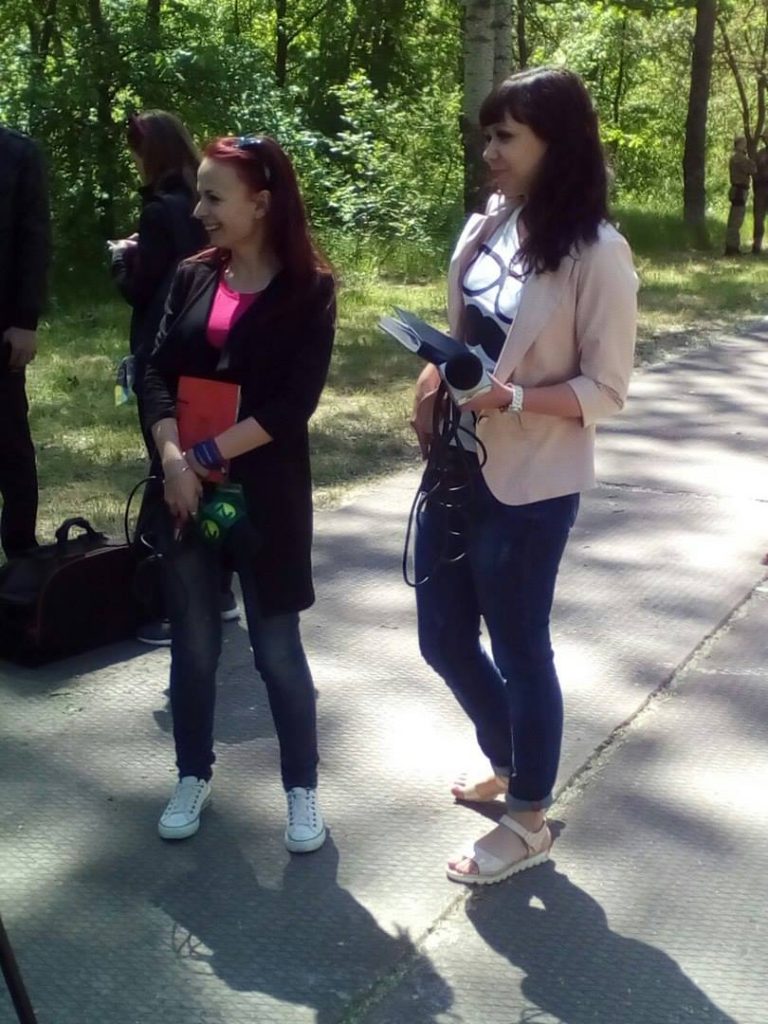
In early October, when Zaporizhzhia was bombarded with S-300 missiles almost every day, the couple spent the night simply in the car. Then every night they shelled some high-rise building.
Aliyona, despite the danger, went to work every day.
“I decided for myself at the beginning of the war that I would leave the city if there was a danger of occupation. I don’t want to live here if there are occupiers here. Everything else can somehow be survived,” the TV presenter is convinced.
JOURNALISTS ARE IMPORTANT. Stories of Life and Work in War Conditions is a cycle of materials received by the team of the National Union of Journalists of Ukraine with the support of the Swedish human rights organization Civil Rights Defenders.





